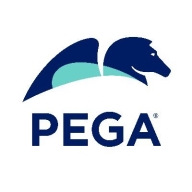

Pega Platform and Joget compete in application development, each targeting unique needs. Pega often leads in robustness and scalability, while Joget stands out for its flexibility and efficiency in agile projects.
Features: Pega Platform offers automation capabilities, advanced process management, and extensive scalability, tailored for large enterprises. Joget features a low-code development environment, ease of use, and quick customization, ideal for small to medium-sized businesses seeking rapid deployment.
Ease of Deployment and Customer Service: Pega's deployment model is robust and designed for complex systems, usually requiring expert intervention. Joget provides quick and efficient deployment, backed by strong customer support, prioritizing agility and integration ease.
Pricing and ROI: Pega entails higher initial setup costs with potentially greater long-term value for large-scale projects. Joget's lower setup costs and rapid deployment offer faster ROI, appealing to smaller businesses looking for immediate results.

Joget is a low-code platform used by businesses for building and maintaining enterprise applications with minimal coding. It is valued for its workflow automation and integration capabilities, customizable forms, and data management features.
Businesses primarily use Joget to efficiently manage processes and automate workflows. They appreciate its versatility in creating business applications tailored to specific operational requirements. The drag-and-drop interface simplifies development, making it accessible to non-technical staff. While Joget excels in flexibility and scalability, it also integrates well with existing systems, accelerating development and reducing costs. However, there is room for improvement in customization, integrations, and performance, particularly during high usage periods. The documentation could be more detailed, and better training resources are needed.
What are the most important features?Joget is implemented in industries such as finance, healthcare, and manufacturing, where companies leverage its low-code capabilities to tailor applications to specific needs. It helps manage complex workflows, integrates with legacy systems, and offers scalability to adapt to changing business demands.
Pega Platform facilitates business process management, case management, and workflow automation for industries like banking, insurance, and healthcare. It supports digital transformation and customer service enhancements with its low-code capabilities and seamless integrations.
Pega Platform enables users to create efficient systems for case management, financial operations, and digital transformations. It provides tools for client onboarding, quoting, claims processing, customer experience improvements, and content management. Pega's low-code approach allows for the automation of complex processes, making it suitable for enterprises looking for adaptability and rapid deployment. While it offers strong real-time analytics and decision automation, users acknowledge challenges in user interface, integration, and performance aspects. High costs and a learning curve need attention, and enhancements in AI features and cloud services are desired.
What are the key features of Pega Platform?In banking, Pega Platform automates loan processing, accelerates customer onboarding, and manages compliance. Insurance companies benefit from streamlined claims processing and policy management. Healthcare sectors use the platform for patient engagement and care coordination, enabling organizations to adapt quickly to changing industry requirements.
We monitor all Low-Code Development Platforms reviews to prevent fraudulent reviews and keep review quality high. We do not post reviews by company employees or direct competitors. We validate each review for authenticity via cross-reference with LinkedIn, and personal follow-up with the reviewer when necessary.